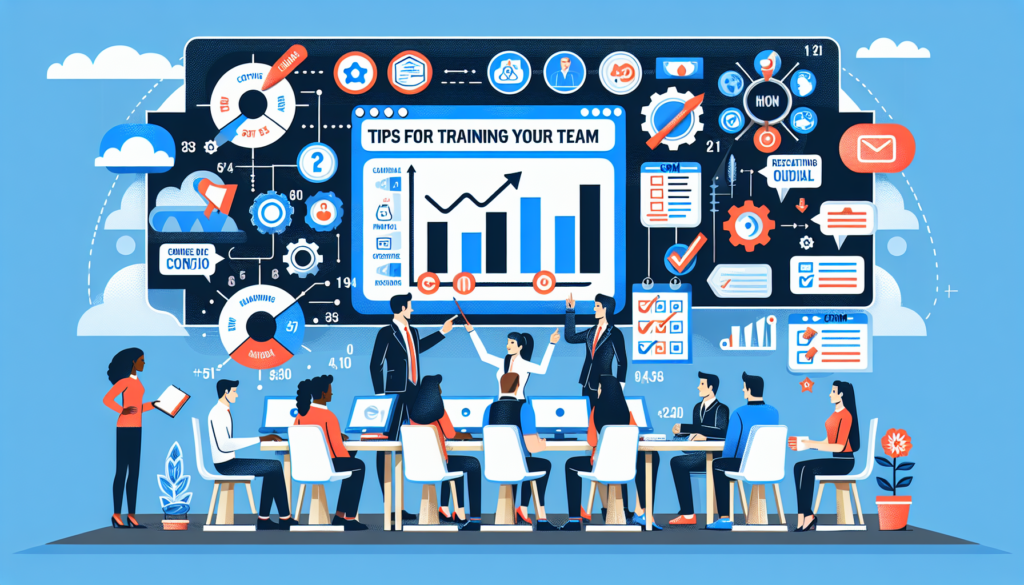In today’s digital age, where managing customer relationships is a crucial component of business success, the adoption and effective mastery of customer relationship management (CRM) systems represent a significant competitive differentiator. Training a team in the use of a CRM is not only an investment in their productivity but also in the quality of service and customer loyalty. This article provides an advanced and technical guide, aimed at managers and heads of commercial teams looking to optimize the implementation of a CRM through strategic training of their staff.
Skills Assessment and Goal Setting
Requirement Analysis and Prior Skills: Before starting any training program, it is essential to perform a detailed analysis of the team’s existing technical competencies and the specific requirements of the CRM to be implemented. Identifying gaps in knowledge will allow the training program to be adjusted to meet specific needs.
Training Objectives Definition: Objectives should be clearly defined and aligned with business goals. Setting SMART learning goals (specific, measurable, achievable, relevant, and time-bound) is a critical step in measuring the effectiveness of the training program.
Customizing the Training Program
Adaptation to User Role: CRM functionality should be taught in the context of each team member’s daily tasks. For effective use, the training must be relevant to the specific operations that each role within the team will perform.
Modular and Progressive Approach: Implementing a modular training program allows users to assimilate basic functionalities before proceeding to more advanced CRM options. Module progression facilitates gradual absorption of information and prevents cognitive overload.
Integration of Active Learning Methodologies
Problem-Based Learning (PBL): This approach places users in front of real or simulated situations that they must solve using the CRM, encouraging the practical application of knowledge and problem-solving.
Peer-to-Peer Training: Shared knowledge among peers can be a powerful tool. This involves setting up group work sessions where more advanced users can guide the less experienced.
Use of Technological Tools and Multimedia Content
CRM Simulators: Simulation technology allows users to interact with the system in a controlled environment, where they can learn from their errors without affecting the actual database.
Multimedia Content and e-Learning Platforms: Tutorial videos, webinars, and online courses are essential to support autonomous learning and allow users to revisit lessons outside of work hours.
Evaluation and Continuous Improvement
Knowledge and Performance Tests: Regular assessments should be an integral part of the training process. They will allow the measurement of both the understanding of theoretical content and skill in practical application within the CRM.
Feedback and Program Adaptation: Collecting user feedback is crucial. Their perceptions help to adjust training modules to improve their relevance and effectiveness.
Contextualized Case Studies
Including real case studies in the training provides users with a deeper understanding of how CRM functionalities are applied in complex scenarios and offers valuable learning experiences. Additionally, they can encourage team discussion and critical reflection on possible system implementation strategies.
Conclusion: Training as Continuous Investment
Effective CRM training is not a one-time event but a continuous process that requires regular updates and constant reevaluation with respect to advances in technology and business needs. Investing in a well-structured and technologically supported training program will not only increase CRM adoption but will also reinforce user competence and confidence, leading to improved business performance and a better customer experience.

